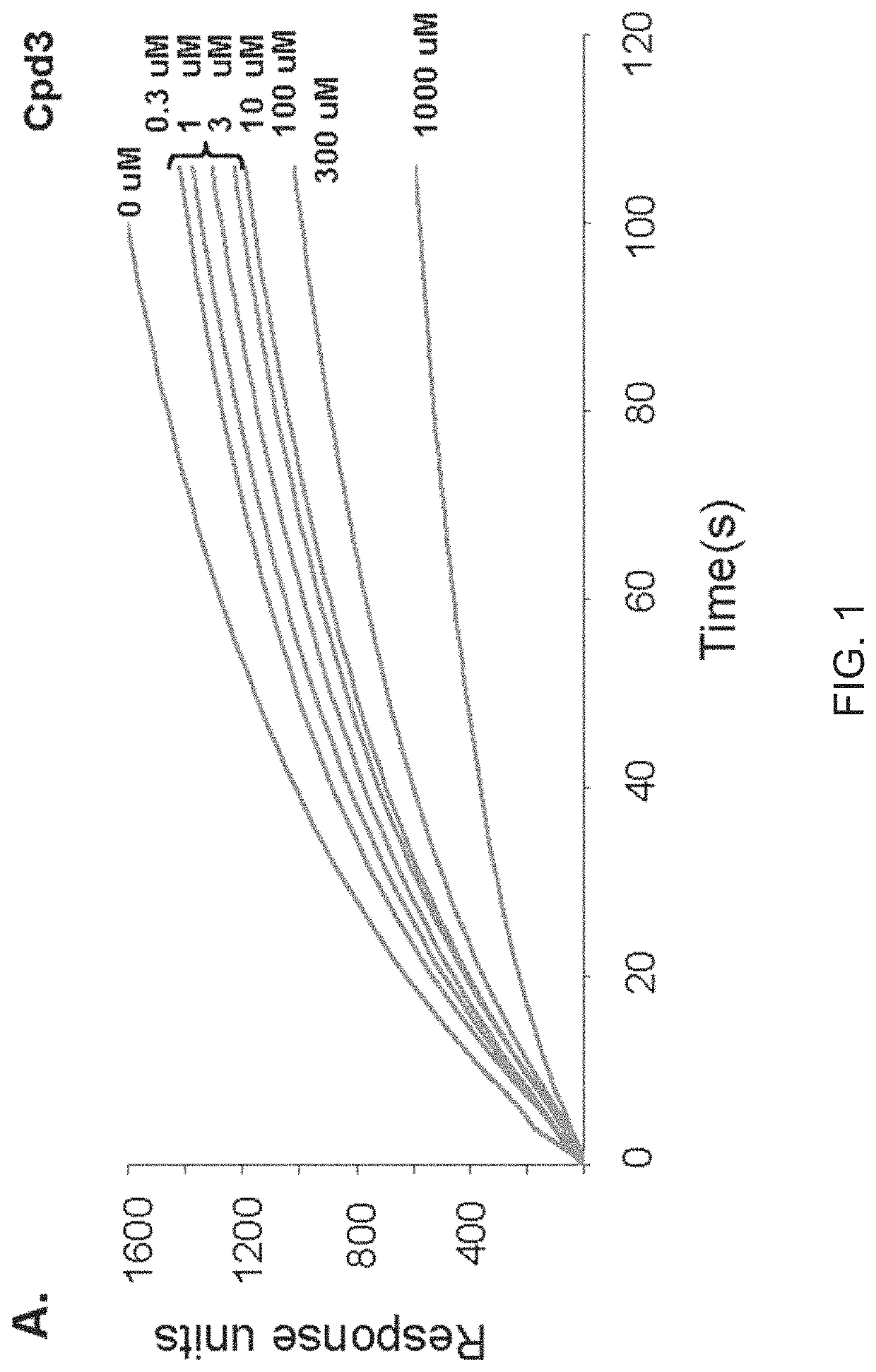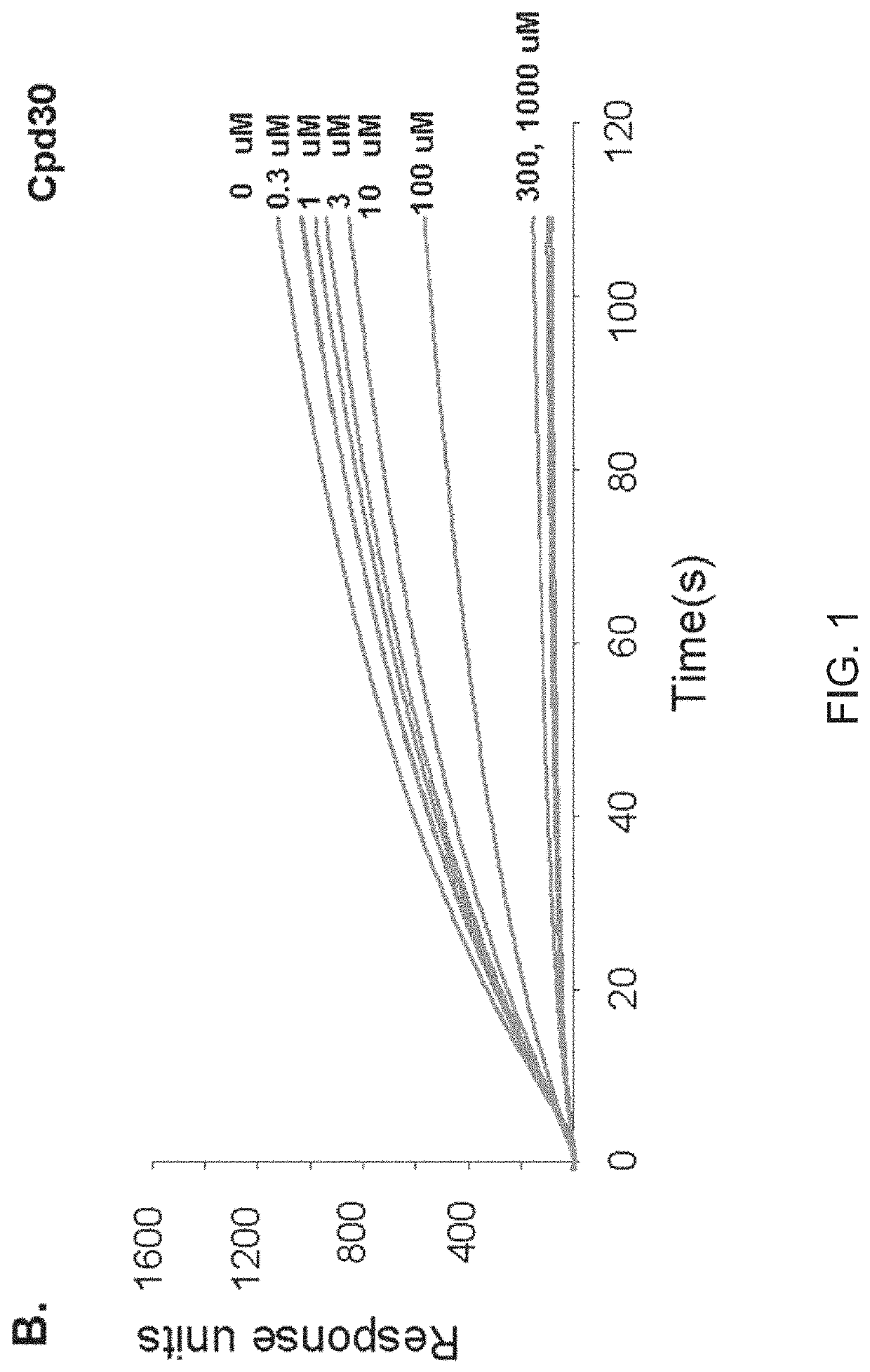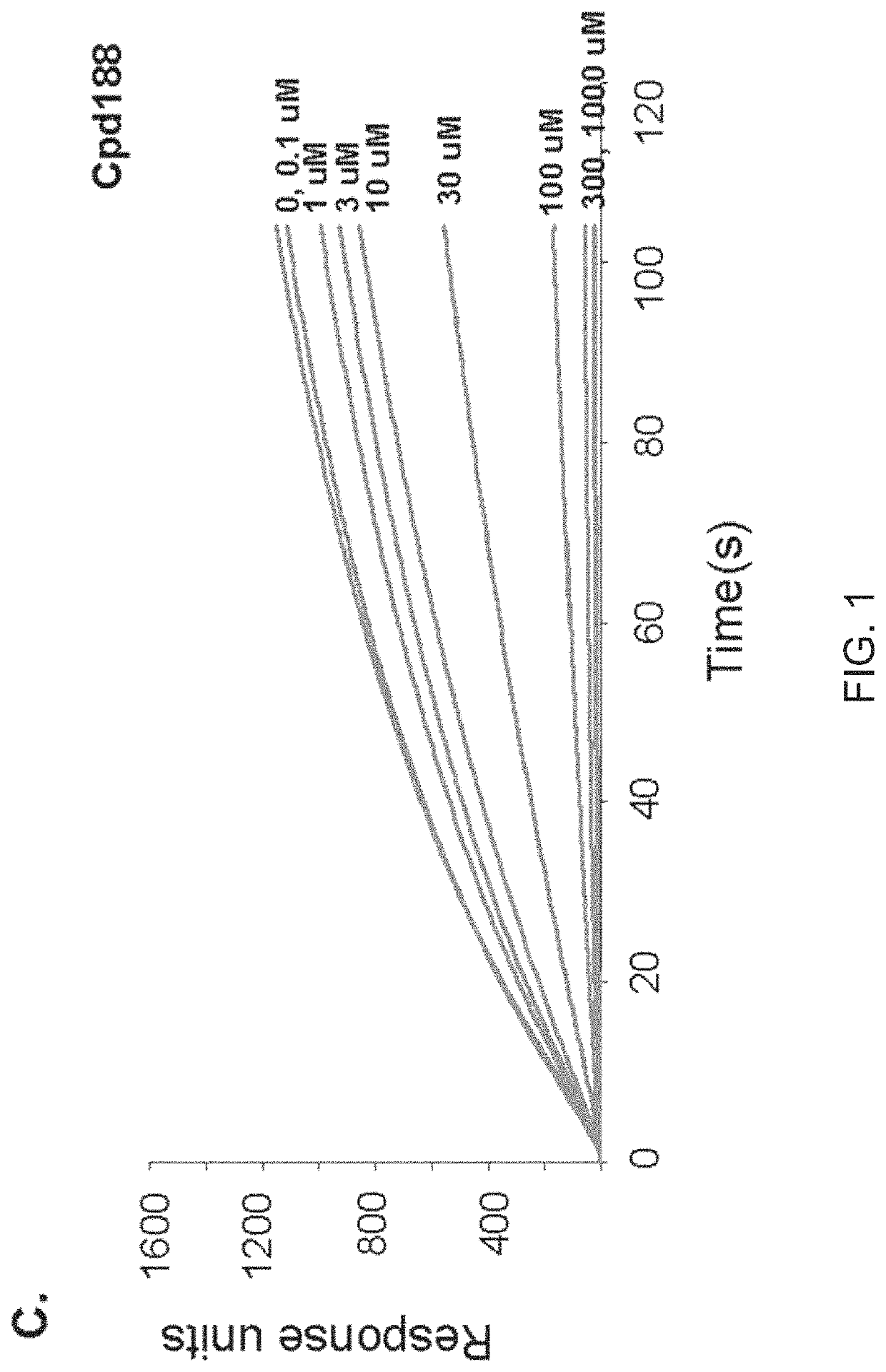Methods and compositions for treatment of muscle wasting, muscle weakness, and/or cachexia
a technology of muscle wasting and muscle weakness, applied in the field of cell biology, molecular biology, medicine, can solve the problem of few reliable strategies that block the loss of muscle protein initiated
- Summary
- Abstract
- Description
- Claims
- Application Information
AI Technical Summary
Benefits of technology
Problems solved by technology
Method used
Image
Examples
example 1
Exemplary Materials and Methods
[0148]Virtual ligand screening. The inventors isolated the three-dimensional structure of the Stat3 SH2 domain from the core fragment structure of phosphorylated Stat3 homodimers bound to DNA (Becker et al., 1998) deposited in the RCSB Protein Data Bank (PDB) databank (PDB code 1BG1) and converted it to be an Internal Coordinate Mechanics (ICM)-compatible system by adding hydrogen atoms, modifying unusual amino acids, making charge adjustments and performing additional cleanup steps. In addition, the inventors retrieved the coordinates of the Stat1 SH2 domain from the PDB databank (PDB code 1BF5) for use in computational selectivity analysis (Chen et al., 1998). Commercial chemical databases (Chembridge, Asinex, ChemDiv, Enamine, Keyorganics and Life Chemicals) were chosen as sources of compounds for screening in silico. Selection was of the amide hydrogen of E638 within the site that binds the +3 residue (Q, C or T) within the pY-peptide ligand (Shao ...
example 2
Identification by VLS of Compounds that Blocked Stat3 Binding to its Phosphopeptide Ligand and Inhibited IL-6-Mediated Phosphorylation of Stat3
[0155]The VLS protocol was used to evaluate a total of 920,000 drug-like compounds. Of these, 142 compounds fulfilled CIA criteria. These compounds were purchased and tested for their ability to block Stat3 binding to its phosphopeptide ligand in a surface plasmon resonance (SPR)-based binding assay and to inhibit IL-6-mediated phosphorylation of Stat3. SPR competition experiments showed that of the 142 compounds tested, 3 compounds—Cpd3, Cpd30 and Cpd188—were able to directly compete with pY-peptide for binding to Stat3 with IC50 values of 447, 30, and 20 μM, respectively (FIGS. 1 and 3; Table 4).
[0156]
TABLE 4IC50 values (μM) of 6 active compoundsAssayCpd3Cpd30Cpd188Cpd3-2Cpd3-7Cpd30-12SPR 44713020256137114pStat3 9118731446360HTM131773915020>3001Data presented are the mean or mean ± SD;ND = not determined.
[0157]In addition, each compound inh...
example 3
Compound-Mediated Inhibition of Ligand-Stimulated Phosphorylation of Stat3 is Specific for Stat3 Vs. Stat1
[0159]While Stat3 contributes to oncogenesis, in part, through inhibition of apoptosis, Stat1 is anti-oncogenic; it mediates the apoptotic effects of interferons and contributes to tumor surveillance (Kaplan et al., 1998; Ramana et al., 2000). Consequently, compounds that target Stat3 while sparing Stat1, leaving its anti-oncogenic functions unopposed, may result in a synergistic anti-tumor effect. To assess the selectivity of the compounds for Stat3 vs. Stat1, HepG2 cells were incubated with Cpd3, Cpd30, Cpd188, Cpd3-2, Cpd3-7, and Cpd30-12 (300 μM) for 1 hour at 37° C. before IFN-γ stimulation (FIG. 4). Only treatment with Cpd30-12 blocked Stat1 phosphorylation while each of the other five compounds—Cpd3, Cpd30, Cpd188, Cpd3-2 and Cpd3-7—did not. Thus, five of the six exemplary compounds identified were selective and inhibited ligand-stimulated phosphorylation of Stat3 but not...
PUM
| Property | Measurement | Unit |
|---|---|---|
| concentration | aaaaa | aaaaa |
| concentrations | aaaaa | aaaaa |
| concentrations | aaaaa | aaaaa |
Abstract
Description
Claims
Application Information
 Login to View More
Login to View More - R&D
- Intellectual Property
- Life Sciences
- Materials
- Tech Scout
- Unparalleled Data Quality
- Higher Quality Content
- 60% Fewer Hallucinations
Browse by: Latest US Patents, China's latest patents, Technical Efficacy Thesaurus, Application Domain, Technology Topic, Popular Technical Reports.
© 2025 PatSnap. All rights reserved.Legal|Privacy policy|Modern Slavery Act Transparency Statement|Sitemap|About US| Contact US: help@patsnap.com



